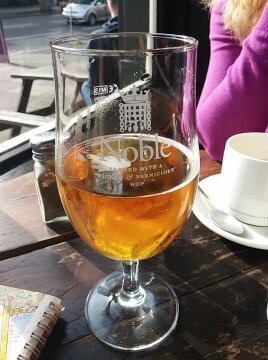
A Council subcommittee recommends that the Town of Watertown seek to add 15 more liquor licenses, but could not agree on whether to waive the license fee for restaurants if they will not open for more than a year.
Additional Licenses
“I think 14 might be the number, and possibly 15,” Copelotti said. “Eight have signed leases.”
The restaurants already signed include Shake Shack, City Works Eatery and Pour House, Tender Greens, Pokeworks, Condesa Restaurante Mexicano, and Frank Pepe Pizzeria Napoletana. Copelotti said he anticipates several others will join them, including some from famous chefs with eateries in Boston. Many will be smaller, between 2,500 and 4,000 sq. ft. in size.
Cities and towns receive a limited number of liquor licenses from the state based on the population, but in recent years additional ones have been approved to help promote economic development. In 2016, the State Legislature approved Watertown’s Home Rule Petition which added 15 new licenses.
Many of these licenses have already been accounted for, said Town Councilor Anthony Donato, chair of the Rules & Ordinances Committee. Only six remain unused.
The Committee discussed adding nine licenses to meet the needs of Arsenal Yards, but some thought that some should be available for other spots in town.
“I would rather not see those six (licenses) eaten up by (Arsenal Yards),” said Councilor Tony Palomba, who is not on the committee but attended the meeting.
The licenses could be used not just by Arsenal Yards, but anywhere in the Regional Mixed Use District. This area also includes the Watertown Mall and land on Coolidge Avenue, including the Mount Auburn Club property.
The Committee voted unanimously to recommend that the full Town Council request 15 additional licenses from the state.
Fees
Unlike traditional liquor licenses, which are owned by the restaurant and can be sold, the ones added in 2016 — and the ones to be requested in 2019 — are controlled by the town, and are leased out.
The annal license fee is higher for the new licenses than for a traditional liquor license. The fee is $8,100 for new ones, while the traditional ones have an annual fee of $2,700.
Copelotti said the businesses are in the situation where their location at Arsenal Yards will not be ready for more than a year, but in order to get the financing to sign a lease they must show that they have a liquor license. This means a business may have to spend several thousand dollars on a license for a year in which they are not operating.
He noted that City Works could have gotten approval for a license in November 2018, but decided to wait until 2019 so it did not pay for a year in which they don’t have a license.
Bill York, an attorney representing Arsenal Yards, said he believes it is an issue of fairness.
“The fairness issue is they cannot use it,” York said. “For example, if I lease an apartment and the complex is not built yet, I don’t pay rent, and you are not giving me the key.”
Councilor Ken Woodland said that he has never heard of a municipal license being given without the business or person having to pay for it. He said he does not support the elimination of the fee if the business is not occupied.
Palomba also said the fee should remain.
“I think the Town has been more than generous to Arsenal Yards,” Palomba said. “I think the amount of money is insignificant compared to the amount they are putting into the project. To me, purchasing a license give them what they need to get financing.”
Councilor Lisa Feltner said she hopes that small businesses may also go into Arsenal Yards. She said paying for a license in a year in which it could not be used could prevent small businesses from opening.
The committee also discussed charging a lower amount, possibly $2,700, in a year that the license cannot be used because the business is not open.
Donato wanted to make sure that a business does not reserve a license and “sit on it” so that another business cannot obtain one. Copelotti said he would be OK with setting a sunset clause where, if a license is not used within 24 months the business has to go back and reapply for one.
Town Council President Mark Sideris, who also attended the meeting, said he could not see a consensus on fees among Councilors at the meeting. So, he suggested moving ahead with the request for additional licenses, and continue the discussion on fees.
He noted the state approval would not be delayed by the decision on fees. The Rules & Ordinances voted to continue the discussion of fees at a future meeting.
Why should all of the licenses to Arsenal Yards and national chains? Watertown has been known for decades as a town that features small, often family owned businesses. Small entrepreneurs are an endangered species because they don’t compete on a level playing field . If more licenses are created, at least half should go to locally owned and operated businesses.